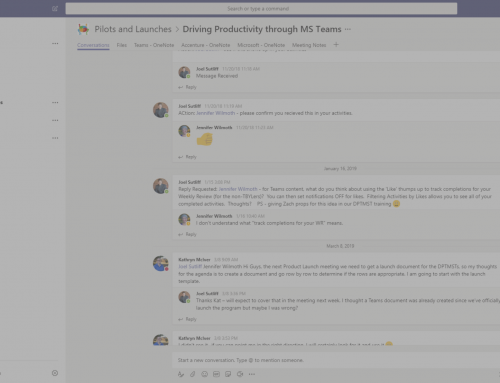
By Brooke Layman
To put it as simply as possible, well-being is the state of being well. In other words, it’s an inner sense of being cared for by yourself, by others, and as we’ll expand on in this article, by the company you work for. The dictionary defines well-being as “the state of being happy, healthy, and prosperous,” and while it seems like well-being would only benefit the individual achieving it, it can actually have a massive impact on the organization that the individual works for, as well. A few mistakes that I see organizations making when it comes to their employees’ well-being is not listening to what their employees are asking for, not supporting employees with better health and stress-reducing programs, and not having standards or protocols around things like email response time and after hour working.
When organizations correct these mistakes by asking for consistent and honest feedback, investing in high-quality wellness programs, and communicating their protocol for maintaining work-life balance, their employees aren’t the only ones to benefit from it. While well-being is centered around improving wellness at an individual level, the impact that comes from it greatly affects the entire company when it’s prioritized at an organizational level. Here are a few ways your organization can benefit from prioritizing employee well-being.
It reduces missed work days, saving organizations thousands of dollars each year.
The European Agency for Safety and Health at Work found that over half of the 550 million working days lost annually in the U.S. are stress related, and that 20% of all last–minute no-shows are due to job stress. When employees are so stressed out that they’re having to miss work, it not only reduces productivity levels, but it also has a large financial impact on the organization, as well. According to Circadian, unscheduled work absences costs roughly $3,600 per year for each hourly employee and $2,650 per year for each salaried employee. By listening to your employees and working to reduce their stress levels, you can save your organization thousands of dollars each year, while also reducing office absenteeism.
It increases and improves employee engagement.
When your employees are stressed out and don’t feel valued or appreciated, their desire to work hard and stay engaged with their role will decrease. One study found a direct correlation between employee motivation and stress levels, finding that 20% of participants lost motivation to do their job when they were experiencing high amounts of stress. Companies should be concerned with this finding considering organizations with high employee engagement rates have a 21% higher profitability than ones with low engagement rates.
It changes the office culture.
If an organization promotes and supports the well-being of their employees, they’ll be simultaneously changing the workplace culture for the better. Think of it this way: when your employees are feeling burnt out with their workload, they’ll be cynical in every other aspect of work, too. This negative attitude will affect the way they interact with their clients, communicate with their colleagues, and complete their work. However, when employees are part of an organization that promotes a healthy work-life balance and encourages wellness, their attitude will change, and they’ll be happier in their day-to-day work.
It leads to more individual, team, and organizational goals being met.
For an organization to achieve their goals they need their employees to work at their optimum level of performance, and performance is greatly impacted by all of the facets of well-being. If a person is getting adequate sleep, focusing on their nutrition, and able to focus on achieving their personal goals as well as their professional goals, their performance will be optimized. When employees are performing to the best of their ability, they’re going to be more productive and come closer to reaching their goals.
When organizations remember that their employees are more than just a person behind a computer, and that they’re more than the work being done, they begin to unlock the true potential of individuals. Ultimately, I believe that well-being means that you are able to give energy to all of the slices of YOUR pie in a way that allows you to feel fulfilled at the end of the day. Whether your pie includes family, friends, travel, entertainment, spirituality, or volunteering, being well means that you are engaged with all of them on some level. No matter who you are, work is one of the slices in your pie, but for this slice it’s all about how we measure our level of satisfaction in our work – do we feel like we are accomplishing something that gives us purpose? Do we feel that the work we do is creating a positive impact on others? Are we looking to grow professionally and further our career? This fulfillment will be different for each person, but the concept will remain the same for everybody. If you or your organization is struggling to ensure all pieces of the pie are being engaged with, contact us today to learn more about how our well-being programs can help you.





